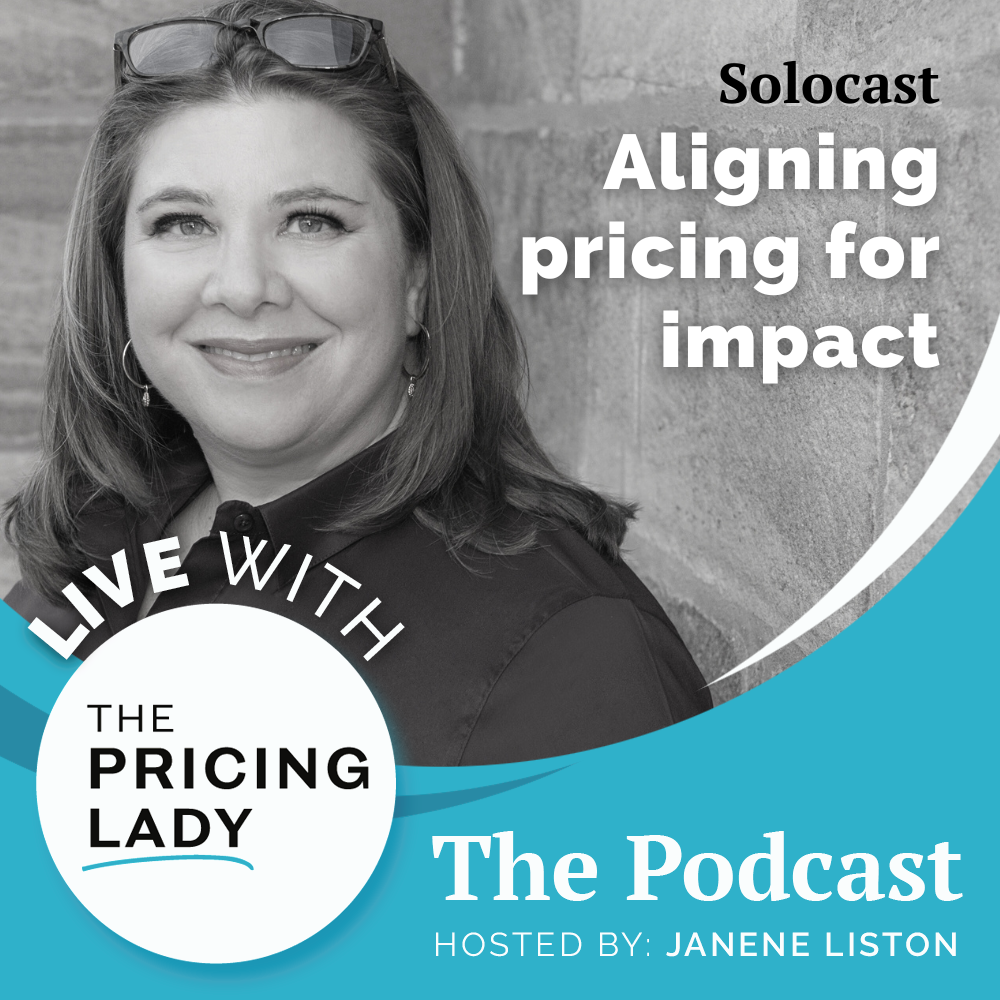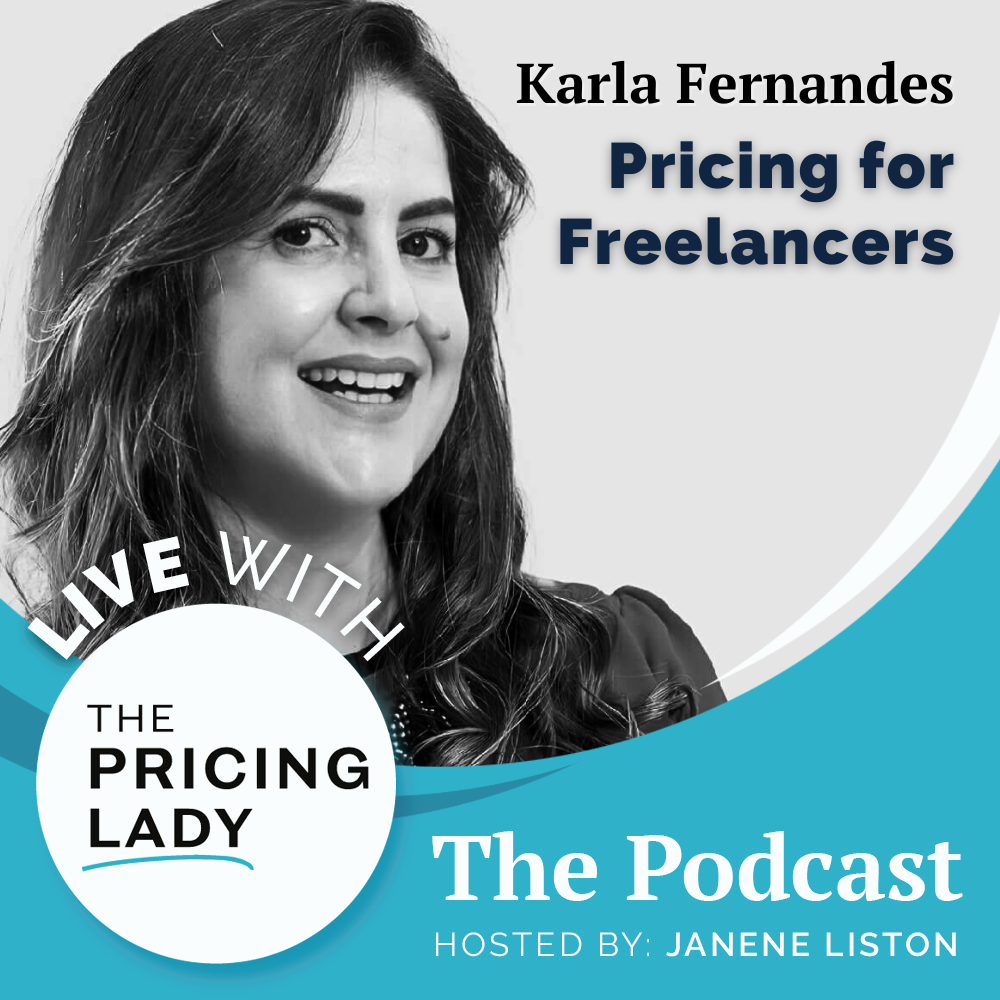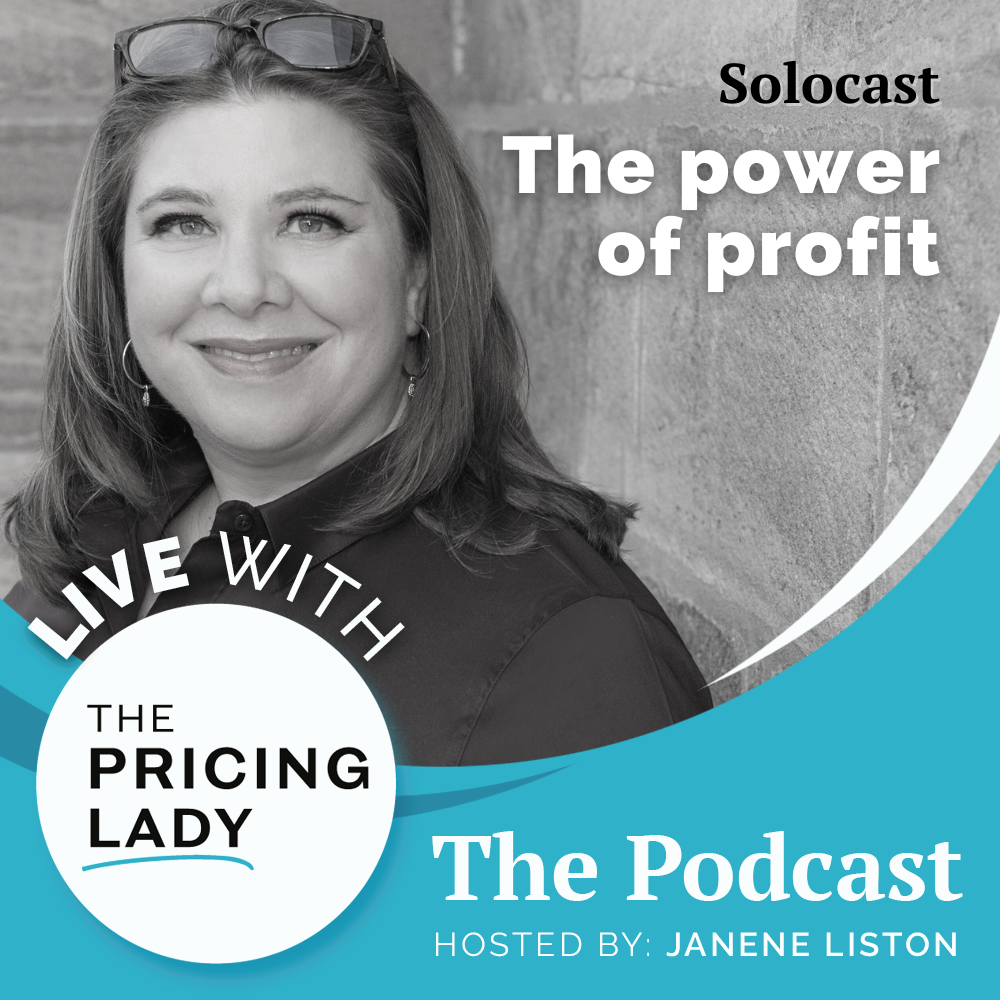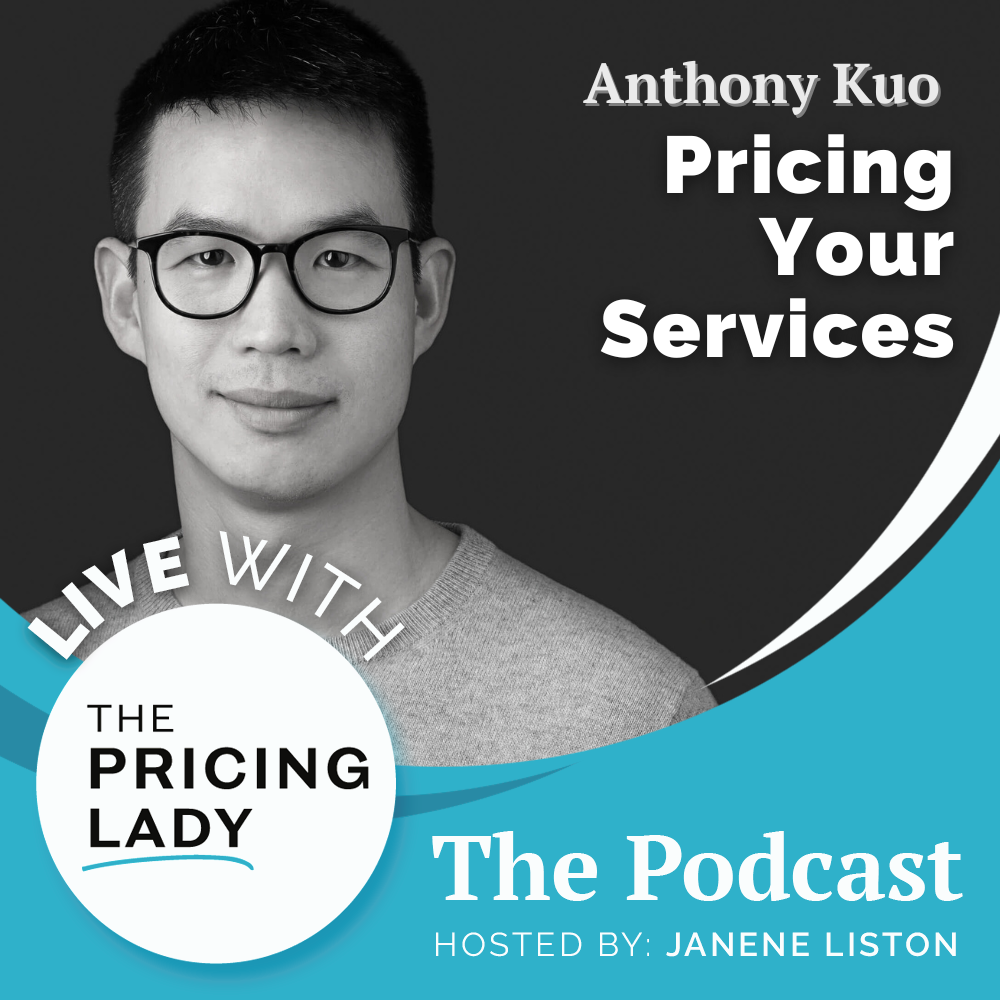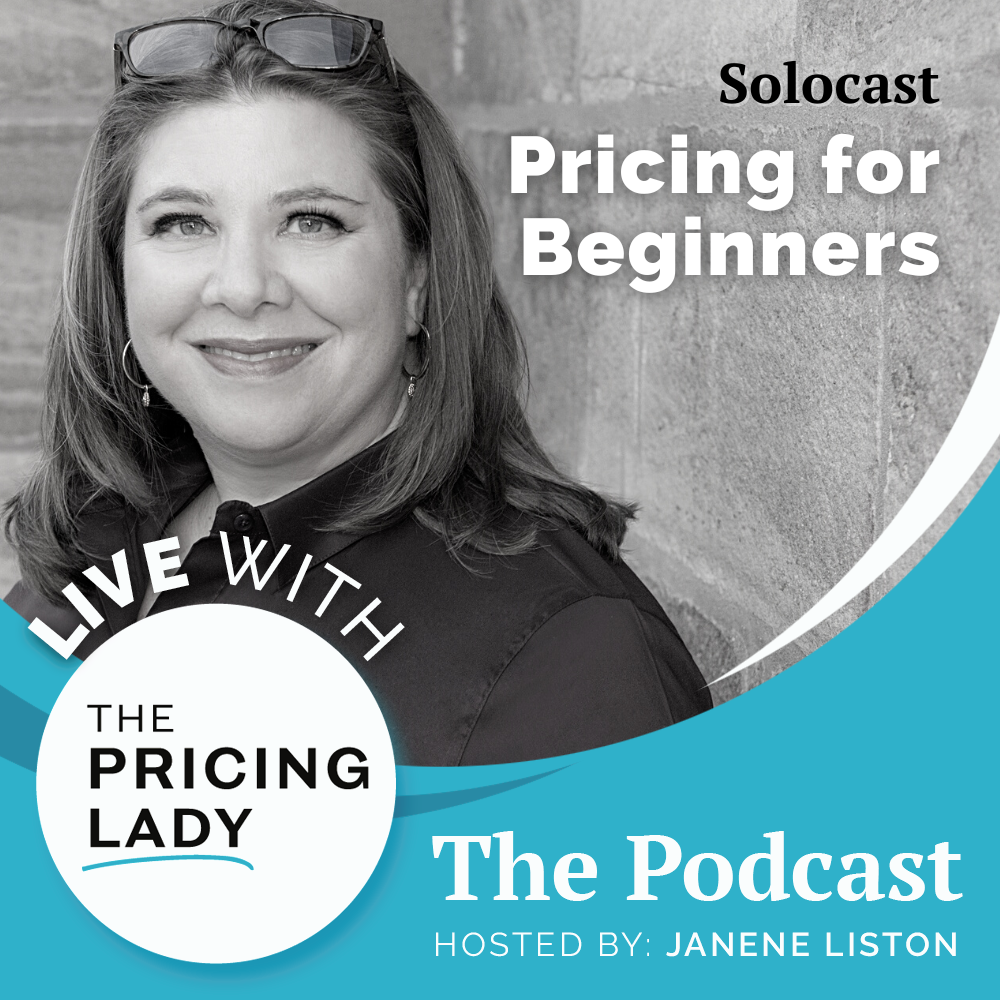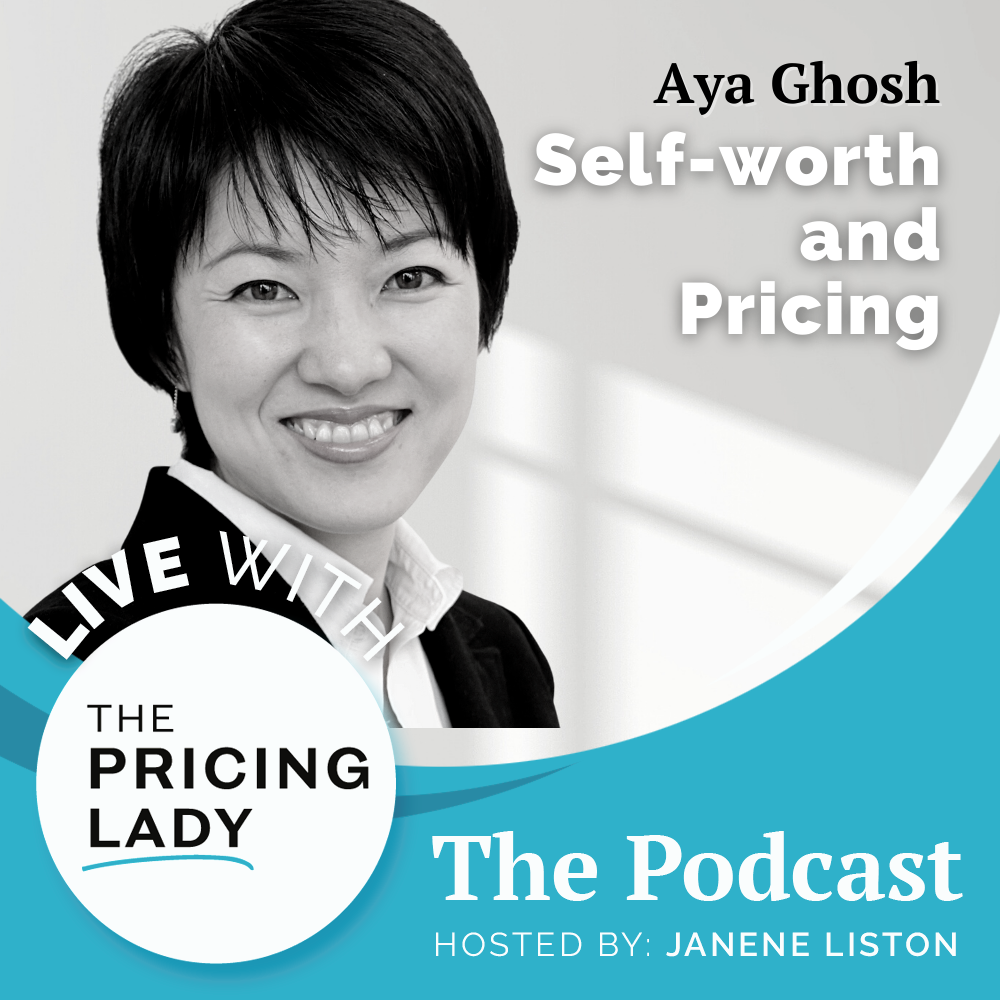Should I set my prices based on the competition?
Pricing versus the competition may seem like the best and sometimes easiest thing to do in some businesses. In other businesses, where there’s less price transparency in the market, it may feel like you’re missing out on a key piece of price setting information because you have no idea what the competition charges.
But what if what the competition is doing isn’t as critical as you think? Of course the competition is an important pricing consideration for many. But what does it mean for your business? Can you only know what price to offer when you know the competition’s prices?
It begs the question, should I set my prices based on the competition?
In This Episode
In this solo cast episode, I’ll break this down and talk about when and how to use the competition when it comes to price setting in your business.
Episode Highlights
- 1:23 What’s Your Strategy?
- 3:08 Small business specificities
- 4:59 Rules of thumb
- 7:24 When not to
- 8:50 How to use it
- 10:11 Wrapping it up
Favorite Quotes
“Should I set my prices based on the competition? The short answer is, it depends. It’s going to depend on your pricing strategy and your positioning.” Janene
You have something in the middle called competition-based pricing. Where you’re going to follow the market leaders.”
“My experience has shown is that most small businesses don’t really benefit from competition-based pricing unless a few conditions are met.” Janene
“If you are offering lower prices because you’re following the competition, then you’re also signaling that you offer lower value. And that may or may not be true.”
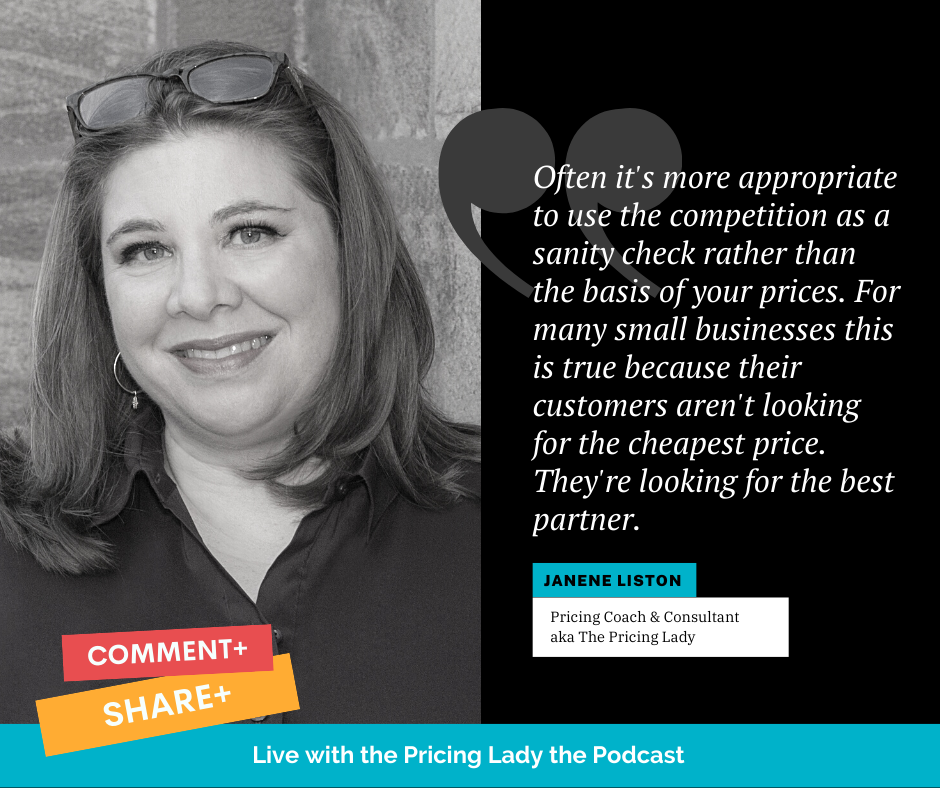
Connect with Janene
Website | Linkedin | YouTube | Facebook | Email List
Get started improving your business. Sometimes it’s difficult to know where to begin. I suggest you Download the the self assessment Pricing Scorecard. Get a view of what’s working and what’s not working when it comes to pricing in your business. Figure out where to start making improvements.
Get in touch with Janene. If you’ve got a question that needs answering, a challenge you’re facing or you have suggestions for future topics or guests, let me know. Contact Janene.
Listen up! Don’t miss out. There’s a lot going on and you’ll want to be in the know. Follow my YouTube channel (rate it too please) so you don’t miss an episode of Live with the Pricing Lady or join my Email List.
Transform your business and life. My business is about helping you build a better business. One that’s profitable and where you can confidently charge for the value you deliver. Curious about my coaching and consulting offers, check them out. Let’s see how we can work together. Book a complimentary Discovery Call today!
Episode Transcript
Welcome everyone. We’re going to talk about, should I set my prices based on the competition? The short answer to this question is, it depends. I bet you probably saw that coming. It’s going to depend on your pricing strategy and positioning. Pricing strategies are a way of saying, how am I going to use my prices to help me meet my business objectives?
And you have a spectrum. At one end of the spectrum, you have your economy and your low price leader based strategies where you’re trying to offer the lowest prices in the market at any given time. And then at the upper end of the spectrum, you have your premium where people are going to pay a price premium, apparently for the value that they’re getting. I say apparently because sometimes that value can be perceived as opposed to something real.
Then in the middle, you have lots of things along that path in terms of strategy. You have something in the middle called competition-based pricing. Where really you’re going to follow the market leaders and you’re going to be pricing in or around them. Usually, plus minus what they say, usually a 10% or so five to 10%. And you may also then be a fast follower, which means that if they go up, you go up. If they go down, you go down. You try to match and track what their.
Now what’s really interesting when it comes to how the competition influences your pricing. What my experience has shown is that most small businesses don’t really benefit from competition-based pricing unless a few conditions are met and we’re going to come back to that in a moment, but it really has to do with how much you can differentiate yourself.
A Few Specific Considerations for Small Businesses
Before we get into that, I’d like to comment on a couple of other things specific to small businesses. What I often hear and see, is that on the one hand people say that they have differentiated offers; that they can charge different prices. But then when it comes to their pricing, they behave differently. They behave like they offer less value, i.e. they have to charge less.
Here are a couple of phrases that I often hear from people, “I have to match the competition. I can’t be higher. I must have a lower price because I’m new in the market. That’s why I priced my set myself 10% below everyone else.” On the one hand, their website and messaging shows something that has a lot of value to it, but then their pricing tells a different story. This is a very important aspect of the discussion about whether to “based my prices on the competition”, because there are some problems in this conflict that people have.
If you are offering lower price,s regardless of why you do it, then you’re also signalling that you offer lower value. That may or may not be true. It also impacts your brand perception. Like I said, if you’re promoting a brand that has a lot of added value, but your prices are indicating something different, that mis-alignment is something that your customers are going to pick up on.
These problems come from not being very clear about what your strategy but also from not understand what to base your prices upon and being unclear about what position you should have. That’s why I said at the beginning, it depends on both your strategy and your positioning. They of course, need to be aligned with one another.
A Few Simple Rules
You’re wondering, all right, Janene, When is it a good idea to use competition-based pricing as your strategy?
If your offer is a hundred percent substitute and there’s no difference, then the competition plays a different role. A lot of the things that we buy at low priced or economy priced shops is because, we don’t care where we buy them.
Another reason is if your offer is perceived as commoditized (i.e. the same as everything else), there’s no differentiation involved. If you want to be successful in a such a market then following the leaders is one strategy to take.
Another one is when the brand or the supplier is irrelevant to the customer. If the customer has a preference for a certain brand then, having a competition based pricing will often lead to underpricing.
Those are three reasons or justifications for using a competition-based strategy. You might have picked up that the more price transparency and similar the offers are the more influence competition has. When your customer don’t care who supplies it, just about the price, that’s what we’re talking about.
For a lot of small businesses, that’s rarely the case. Then we have some of you who … you’re serving customers who are looking for the lowest price. That’s true. And maybe your offer is commodity based. I don’t know. But you may be able to differentiate because people prefer your brand. Then you wouldn’t run necessarily a competition-based strategy.
When Not to Base Price On the Competition
When shouldn’t you use such a strategy, and this is gonna be kind of the opposite of what we just talked about, but it’s important to have that discussion. If your customers are willing to pay for the value they get. If they have any willingness to pay for value, additional value, things that you bring to the table, then a competition-based pricing strategy is not going to help you very much.
When you can differentiate your offer or if there are additional benefits to your offer again, then you wouldn’t want to use a competition based pricing. When you can sell on value. So when customers are willing to hear and understand or want to understand the value that you bring and how that might be different from others, again, this value selling concept, it doesn’t really fit into a competition or economy based strategy it’s going to be where people really are interested in paying for value.
I added another one on here, which is relationship. It could be if you’re a service or a product based business, you have a certain relationship with the customer and if that matters to them, then that becomes an additional benefit . Again, that moves you away from being a commodity and moves you towards being, an offer with a value.
That should give you an idea of when you might want to use it and when not.
How to Use It When Your Prices Are Competition Based
Now, if you’ve come to the conclusion that your offer is definitely not a commodity. It’s not something that people can just swap out and your customers, aren’t looking for the lowest price. Then the question again becomes, how do you use that information around the competition, in your pricing?
If you’re not going to be basing it on it, then how would you use that? And what I do with my clients is we do what’s called a competition check. So we set the prices based on other things like willingness to pay and value . And then. We checked that position in the marketplace against the competition to see where you end up being positioned or where they end up being positioned relative to the rest of the market.
And then do a sanity check. Does this make sense with where we want to be positioned, with how we’re perceived, with what else is going on in the market? Instead of using it as the basis for their pricing, use it as a sanity check. For a lot of small businesses, that’s going to be more important because your customers aren’t necessarily looking for the lowest price, at the expense of value that they can get in the market.
They’re actually looking for the best partner that they can have, that will give them the best solutions. And therefore, they’re going to be willing to pay a bit more for it.
That is what I wanted to share with you today. Go back to our original question. Should I set my prices based on the competition? It depends on your strategy and positioning, but for most of you who are running small businesses, you’re going to use the competition as a sanity check when it comes to your pricing.

